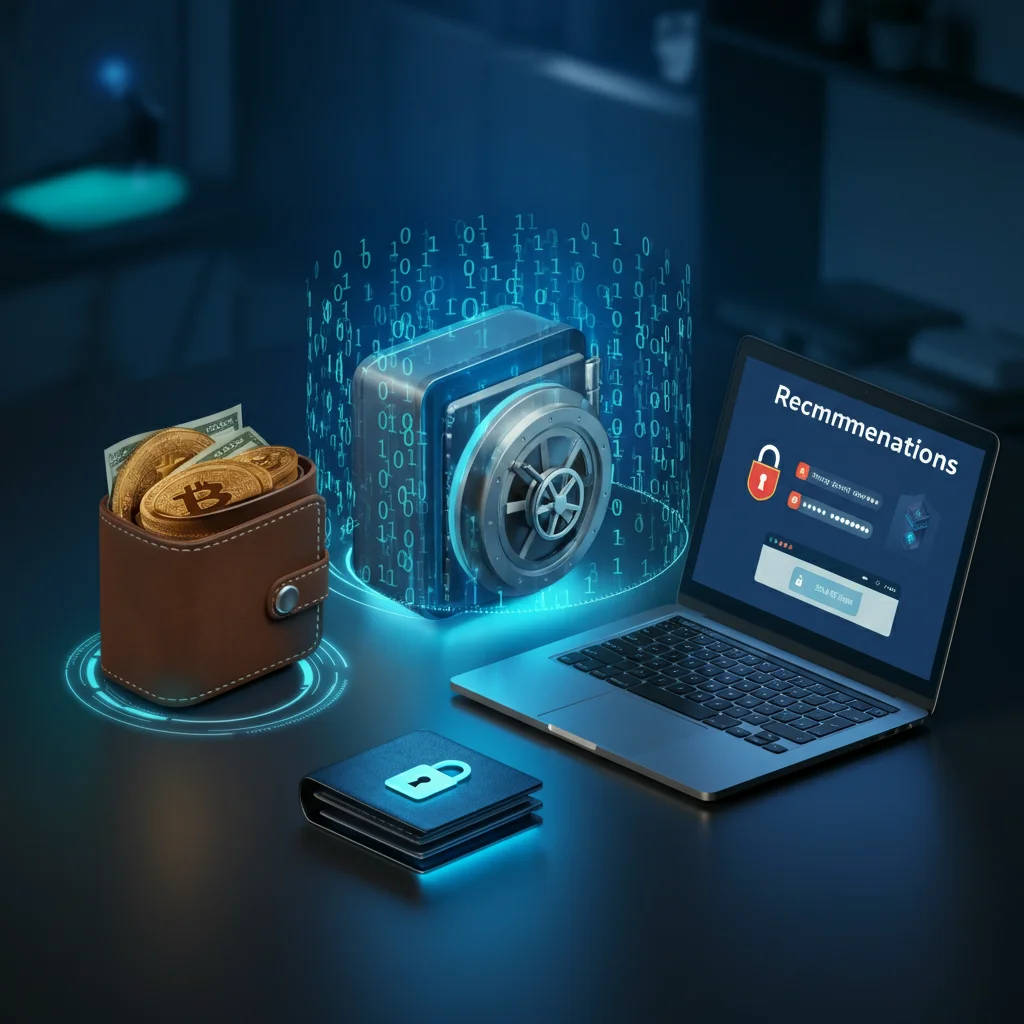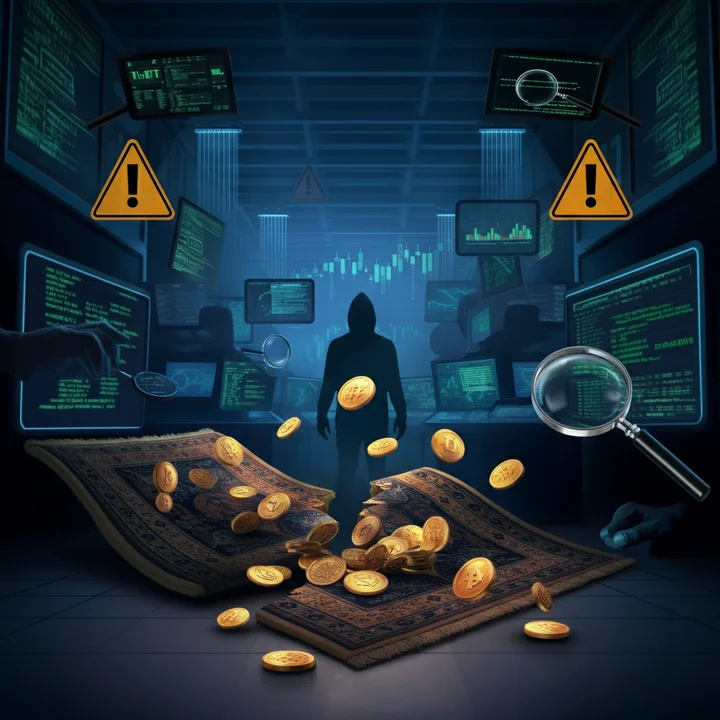Securing Your Crypto Wallet: Tips You Must Know
Cryptocurrencies are revolutionizing how we think about money, giving users unparalleled control and freedom. But with this immense freedom comes an equally significant responsibility: securing your crypto wallet. Without the right precautions, your digital assets could be vulnerable to cyber-attacks, hacks, or even accidental loss.
This blog will guide you through essential tips for enhancing crypto wallet security. We'll cover wallet types, password protection, avoiding insecure connections, and much more.
Why Wallet Security Matters
When you own cryptocurrency, you essentially hold keys to a decentralized world. Any compromise to these keys can lead to unrecoverable losses. Unlike traditional bank accounts, there’s no centralized authority like a bank to retrieve your funds in the event of theft or loss. This makes your wallet security indispensable.
Just how serious is the issue? According to Chainalysis, hackers stole cryptocurrency worth nearly $3.8 billion in 2022. That’s why understanding and actively implementing wallet security measures is critical for every crypto enthusiast.
Types of Wallets: Hot vs. Cold
When it comes to crypto wallets, they fall into two main categories:
Hot Wallets (Connected to the Internet)
Hot wallets are convenient and accessible, and they come in various forms like mobile apps, web wallets, and desktop applications. Examples include MetaMask, Coinbase Wallet, and Trust Wallet.
Pros:
Extremely user-friendly.
Easily accessible for frequent transactions.
Cons:
More vulnerable to attacks because they are always online.
Cold Wallets (Offline Storage)
Cold wallets, on the other hand, store your cryptocurrency offline. These include hardware wallets like Ledger and Trezor or even paper wallets.
Pros:
Immune to online hacking attempts.
Best suited for long-term storage.
Cons:
Less convenient for everyday transactions.
Physical loss of the device or paper can result in losing your crypto.
The right wallet for you depends on your usage. If you’re actively trading and making transactions, a hot wallet may be easier to manage. However, if you’re holding a significant amount of cryptocurrency as a long-term investment, consider using cold wallets for better security.
Using Strong Passwords and Two-Factor Authentication (2FA)
Just as safeguarding your email or social accounts requires strong passwords, the same applies to your crypto wallet. Weak passwords or reusing the same passwords across services is like leaving your front door unlocked.
Tips for a Strong Password:
Create a password that’s at least 12 characters long, combining uppercase and lowercase letters, numbers, and special characters.
Avoid common phrases, names, or dates of birth.
Use a password manager to generate and store unique, complex passwords.
Enable Two-Factor Authentication (2FA):
2FA adds another essential layer of security. Even if someone somehow guesses or steals your password, they won’t be able to access your wallet without the secondary verification code. Use apps like Google Authenticator or Authy for this purpose, as they are more secure than SMS-based verification.
Backing Up Seed Phrases Securely
Your seed phrase (or recovery phrase) is the most critical backup for your wallet. This string of 12-24 words allows you to recover a wallet if you lose access to the app or device. Treat it like the “master key” to your crypto holdings.
Best Practices for Seed Phrase Security:
Write it Down: Never store your seed phrase digitally, like on your phone, PC, or cloud storage. Write it down on paper.
Store it in Multiple Safe Places: Keep your written seed phrases in secure locations, such as a safety deposit box or a fireproof safe.
Avoid Sharing: Never share your seed phrase with anyone. Even customer support or technical assistance from wallet providers should never ask for it.
By taking these simple yet effective steps, you ensure that the backbone of your wallet security remains intact.
Avoiding Public Wi-Fi and Insecure Devices
Whenever possible, avoid accessing your crypto wallet over public Wi-Fi or on devices that are not entirely secure. Public Wi-Fi networks are a playground for hackers who intercept unencrypted data and session information.
Steps to Stay Safe:
Use VPNs: If you must use public Wi-Fi, a Virtual Private Network (VPN) encrypts your connection, significantly reducing risks.
Trustworthy Devices Only: Conduct all crypto-related transactions on devices that you trust. Avoid using shared devices or accessing your wallet on systems that may be compromised.
Keep Software Updated: Regularly update the software on your devices and wallet applications to patch vulnerabilities.
Hardware Wallet Recommendations
For those who want unparalleled security, hardware wallets are the gold standard. Unlike some other wallets, hardware wallets are external devices that store your keys offline, making them incredibly difficult to hack.
Top Picks:
Ledger Nano X: With Bluetooth support and a sleek design, it balances usability and security.
Trezor Model T: Offers a touchscreen and robust security features, perfect for advanced users.
Ellipal Titan: A completely air-gapped wallet, offering maximum security away from any kind of network.
These wallets can range in price from $50 to $200, but this one-time investment can save you from significant financial losses in the future.
Staying Up-to-Date on Threats
The security landscape is always evolving. Hackers constantly come up with new techniques, and wallet providers likewise strengthen security protocols. Ignorance isn’t bliss when your cryptocurrency is on the line.
Here’s how to stay informed:
Follow Reputable Sources: Stay updated about crypto threats, wallet vulnerabilities, and software updates through trusted platforms like CoinDesk, CryptoSlate, and official wallet blogs.
Participate in Communities: Reddit forums, Telegram groups, and Discord servers focused on cryptocurrency can also provide real-time insights and tips.
Enable Alerts: Many wallet providers offer notifications for suspicious activities. Enable these to monitor your wallet closely.
Simplify Security, Protect Your Crypto
Securing your crypto wallet doesn’t have to be complicated. By following the steps outlined in this guide, you can significantly reduce the chances of losing your hard-earned assets to hackers, scams, or accidents.
Whether you're an occasional investor or a crypto enthusiast, proactive security measures are essential. Start by evaluating your wallet type, create strong passwords, and always keep your seed phrase offline. If you’re serious about long-term safety, consider investing in a hardware wallet.
The world of cryptocurrency is full of opportunities, but it rewards preparation and caution. Take the first step toward securing your digital wealth today. Your future self will thank you.



